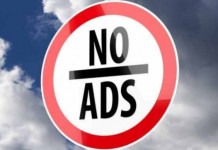 Occasional Teleread contributor Dan Bloom in Taiwan notes that the Urban Dictionary has now accepted the word “snailpaper” to stand for the print editions of our local daily newspapers nationwide, which often, Dan notes, arrive at our doorsteps in the morning with news that is already 12 hours old. Dan quotes in his blog:
Occasional Teleread contributor Dan Bloom in Taiwan notes that the Urban Dictionary has now accepted the word “snailpaper” to stand for the print editions of our local daily newspapers nationwide, which often, Dan notes, arrive at our doorsteps in the morning with news that is already 12 hours old. Dan quotes in his blog:
“I am sick and tired of reading the snailpaper edition of the New York Times! By the time it arrives, the front page is already old news. I much prefer reading the Times online website with the up-dated news as it happens.”


































I’m past 45; have had an active e-mail account since 1988, had been a sentient grownup for 15 years when the Web ‘broke big’. (I used Gopher before that, for academic research purposes. Remember Gopher?)
I have *never* subscribed to a print newspaper; subscribed to the international edition of ‘Time’ twice while abroad, and since 1995 have gotten nearly all of my news from the ‘tubes.
The question remains interesting, nonetheless:
Even as whe here in Europe haven’t yet seen the phenomenon of rapidly growing numbers of closing print-newspapers the USA seems to witness, I suspect the problem will hit the european newspapers very shortly. As I read over the week the famous London based “Evening Standard” which in earlier times came up with several different (!) print editions a day has apparently now been made a free giveaway advertising paper by its (russian) owner.
Over the years and living in different places I have always kept a habit of holding the local newspaper for daily delivery. I still do. But I stopped the daily purchase of one of the “bigger” newspapers with better nationwide coverage in favour of newscoverage over the web.
I was among the first subscribers to the Washington Post web service: They started out as an ISP, giving the subscriber access to Post content (not quite everything), an e-mail account, and web access. So I’ve been used to getting my news online (and on news radio, which was the closest competition the web ever had for on-time news) for quite some time.
Basically, the printed news is only still there to support the advertisers. I’m all for news services making a profit, so hopefully they’ll figure out how to transition to web services eventually. In the meantime, I am exclusively web.
I disagree. Certainly, I get the headlines for the national news on the Internet and I no longer need the newspapers for that.
I do subscribe, however, to the New York Times for the more detailed analyses, the features, and (believe it or not) the ads, especially the ads in the book review section. While much of this material is available on the Internet, it’s simply more convenient and much faster to scan through all this in hard copy. Beyond front-page material, the Web versions of newspapers and network news sites are hard and slow to scan through and Web ads are much more annoying and harder to ignore than print ads.
I also subscribe to my local paper for local news and local ads. While our local paper has a Web site, it’s fairly primitive and limited in its scope compared to the printed copy.
I don’t particularly like the term “snailpaper” either, because it seems largely unilateral on the part of Dan, unlike “snailmail” which evolved over time. But on the other hand, I don’t suppose anyone else has come up with a short, useful name to differentiate them.
My family has never subscribed to newspapers; my Dad always got his news from the TV. And now that most newspapers are on the net, I have even less need for the paper version. I can see what I want to on the web instead.
Interesting. I’ve never liked daily newspapers. I read the local weekly, Slate online, and Newsweek on dead trees. Any breaking news I get over the TV with breakfast. Sometimes I’ll check CNN or MSNBC on the web if there’s a breaking story I want to keep track of. I guess that makes me ‘Neither’. YMMV.
Regards,
Jack Tingle
Sure they have: Newspaper and Web. Differentiation accomplished! Today was the first I’d heard of “snailpaper,” which, if you think about it, is a pretty stupid word anyway. If anything, “snailnews” would be more appropriate… but to be frank, “pastnews” would probably be the most accurate…
Oh, what the heck… why can’t we just call it “NEWS”?!?? This specialized name thing is for the birds!
I read online.
When I go to the coffee shop, I often pick up a printed newspaper. A ereader in my hands would mean no wasted paper and fuel to ship it to the coffee shop.
You can get news online if you check news sites, but that’s not how I spend my time online. I hit “rd” and open a set of tabs with e-reading sites in them or “ga” for gadget sites, and so on, with other specialized sets. If a meteor struck Boston, I’d not find out about it from anything I do online daily. News is what I get the day after it happens, in the newspaper. Info is what I get online.
I get all my news online now (cnn.com, NYT.com, etc). I can’t remember the last time I read a print newspaper. In fact, when I happen to see a paper at the store, I have already read most of the stories on the front page the day before! My local bookstore hardly sells any daily papers anymore and sends most of them back.
Since getting my 2G iPhone I check the news throughout the day. Very handy when there is a big breaking news story.
Print papers are dead!
Chris, and everyone else above, good comments all. Chris, actually, I did not coin the term. I did not unilaterally coin it at all. If you search online, as I did before I got into this research for a term for print newspapers, you will see that several references refer to snail-papers long before I spotted the word. All i did was spot the word, three times at least, and then i said, hey, that’s an interesting word, let’s see what other people think. So far the jury is still out, WAY OUT, and I doubt snailpapers will ever become as popular as snailmail, which was coined in 1981 by one man, Jim Rutt, as you might know if you Wiki search it. But I did not coin snailpapers, as an editor with an editor’s eyeshade, i spotted the word already in use by others online, and thought it might be both useful (maybe) and humorous (maybe).
Let’s see how it plays out. As Steve says WEB and NEWS are fine words. We don’t a new word like snailpapers, but then again, we never needed snail-mail as a new word either. Time will tell. One man told me today he does not like snailpaper as a new term for print newspapers, mostly because he HATes the word snailmail and never uses that term.
So just to remind you Chris, I did not coin the word. I just spotted it. That’s what editors do. They spot things. I don’t see dead people, as the kid in the 6th Sense said. I see new possibilities. Some work out, most don’t. My batting average is 1 out of 100. 99 of my ideas never pan out. every once in a blue moon, one works.
Does it really matter that much if I get my news immediately online or twelve hours later in print? If I read something in the newspaper I didn’t know before, it is still news to me.
If I had a job that would require me to have immediate news — lets say stock/trade analyst — I would probably use a specialized information source for that. I don’t have such job. My job actually requires level of concentration that doesn’t leave much room for interruption to get the very latest news online.
Although I always loved newspapers, I stopped reading the print version some time ago and switched to all-electronic. The only reason for that was convenience and usability. Have you tried reading print broadsheet in a crowded subway? My e-reader device offers very different experience in that setting.
Maybe it is because I am on the wrong side of 40, but the ultimate “killer” feature for me is being able to adjust the font size to suit my needs. No newspaper can match that.
A blogger in South Korea picked up this post and he or she headlined it in English before adding the Korean translation: “Do you read the “olds” on snailpapers or the “news” on online sites?”
Cute.
quote: TeleRead: Do you read “olds” on the snailpapers or “news” online now? http://bit.ly/53gq1t 오후 2시 33분
twi2me
Both online news sites and snailpapers are valuable vehicles in delivering news and coverage of issues.
Online news is now – as it happens.
Snailpapers are often:
a. more reliable and
b. considered …
as the pace of life increases the use of judgment decreases …
Check out the “Snailpaper” CARTOON at
http://www.marytoons.com
(hat tip to Newspaper Death Watch): SCROLL DOWN TO SEE ITEM BELOW:
NY Times Swallows Paywall Pill
By paul gillin | January 22, 2010 – – Posted in Advertising, Best/Worst, Business News, BusinessModel, Newspapers, OnlineMedia, Paywalls, Snailpapers
”Dan Bloom has come up with a new word for newspapers. He calls them “snailpapers.” [But] the longtime newspaperman insists this is a term of endearment, not derision. He thinks maybe if newspapers poked more fun at themselves instead of getting all righteously indignant about new media, they would generate more sympathy. More on his blog
[Dan calls them snailpapers because they arrive at our doorsteps in the morning with news that is already 12 hours late. But he uses the term as a term of endearment, let’s be clear about that. Dan loves snailpapers and hopes they never disappear. Newspaper Death Watch: chronicling the death, strike that, DECLINE, of newspapers and the rebirth of journalism (edited by this blog)